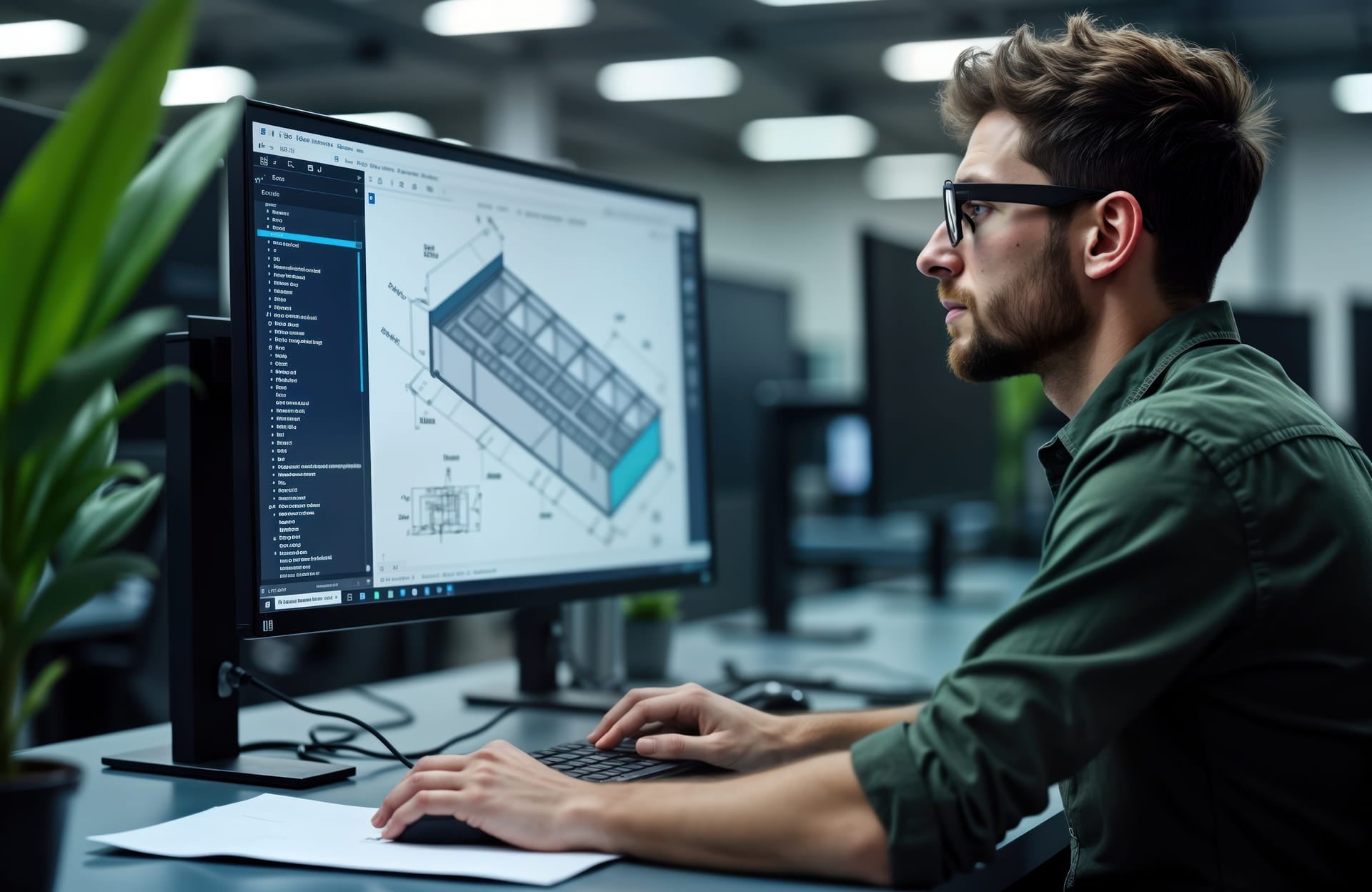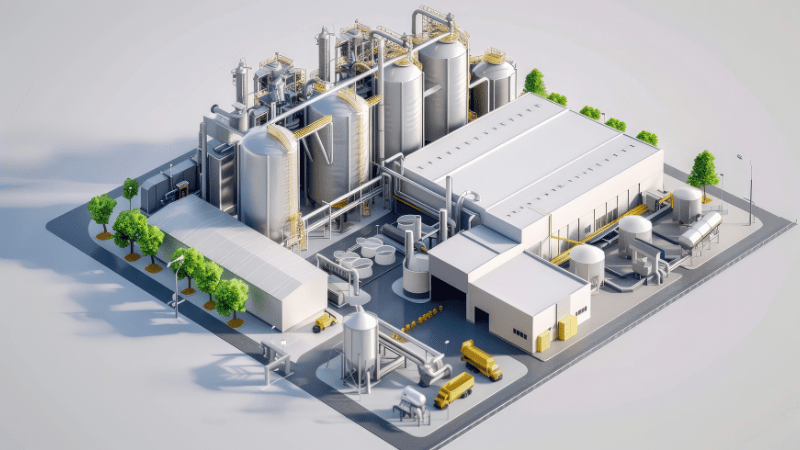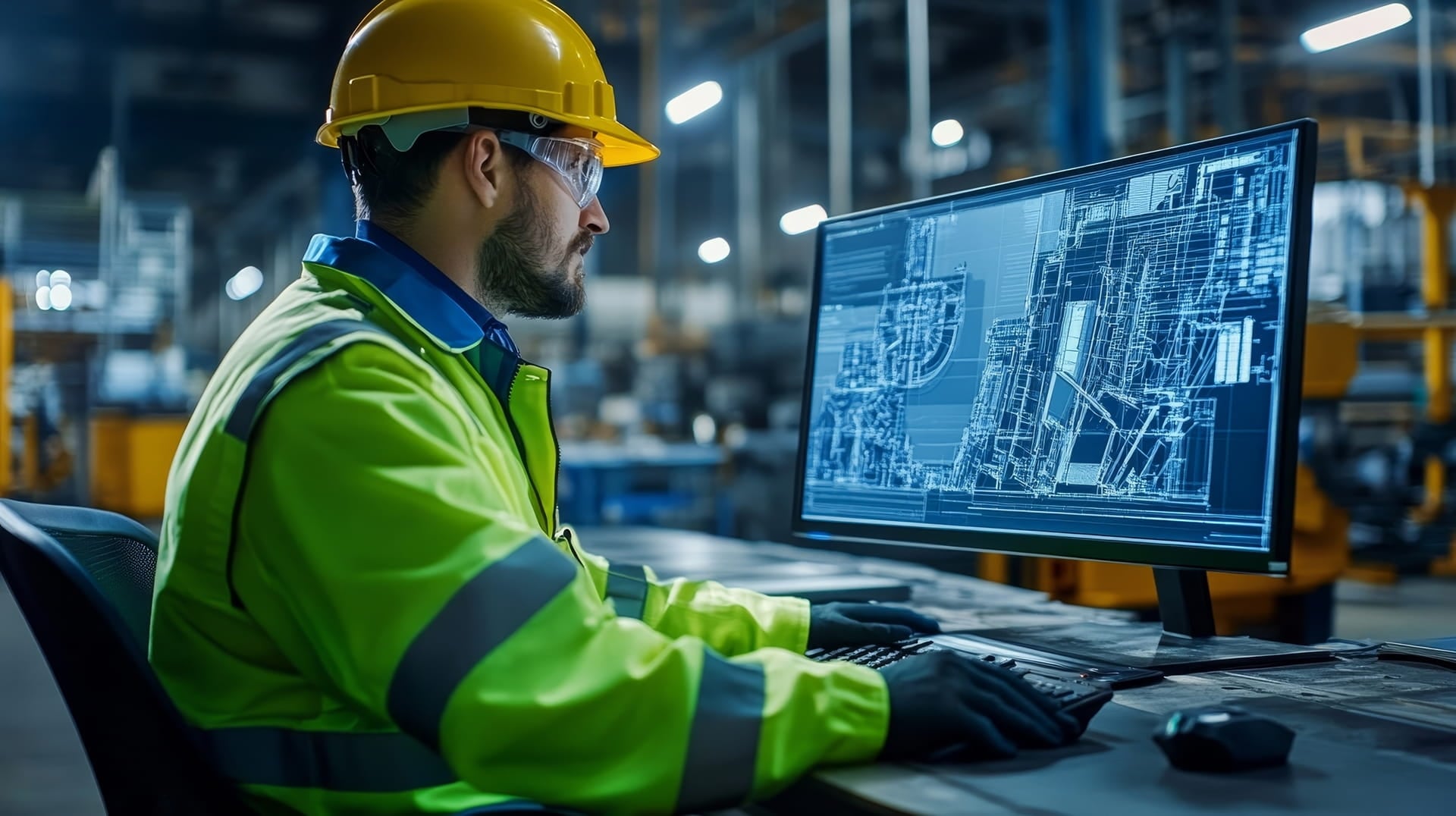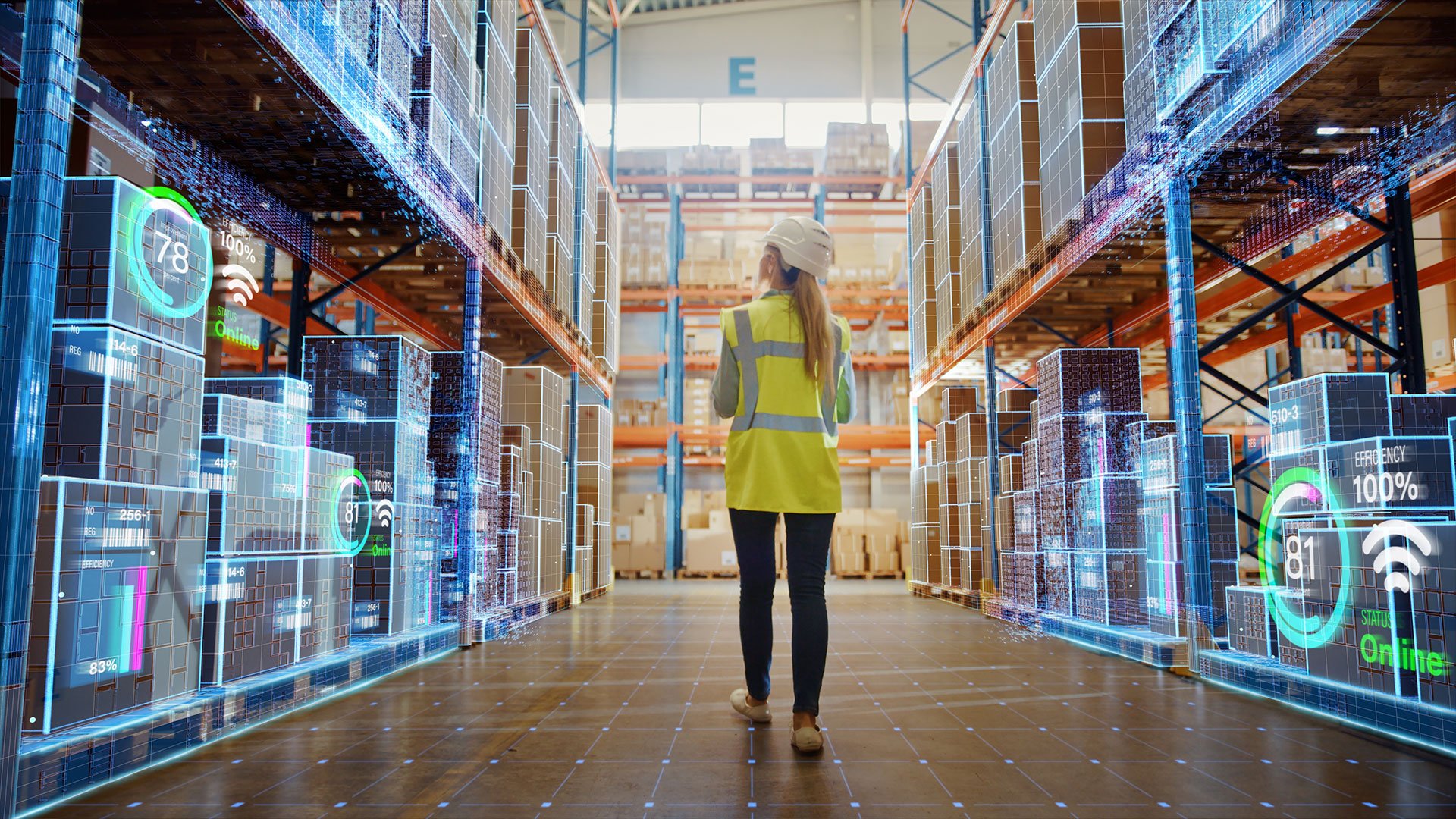Industrial concept development

Industry services: Concept development to shape and optimise your industrial project
What is involved in the industrial design process?
This is an important phase for establishing requirements across a range of disciplines. Strategic decisions need to have been made about the production concept, technical layout, critical equipment, digitalisation and automation.It’s important because, for example, high levels of warehouse automation can significantly reduce the footprint. You need to know information and data requirements connected to digital project delivery. These will evolve over the project lifecycle in line with appropriate standards and data models.
Haskoning is implementing innovative technologies including AI to improve quality and efficiency during FEL (Front-End Loading) 0 and 1 design stages, which relate to identifying opportunities, assessing feasibility and developing preliminary designs.
Drawing on our databases and experience, these technologies benefit areas such as business case and data centre development as well as waste water plant design. We use techniques such as parametric design to inform decision making and optimise layouts which can result in significant efficiencies.
The master plan frames the industrial design process defining the project scope, schedule and budget as well as production capacity and volumes, workflow dynamics, space optimisation, scalability and other important features. Detailed inputs are drawn from the feasibility study and may include feedstock, materials and energy requirements, utilities, personnel and space.
More detailed technical input such as mass and heat balances provide insight into expected material and energy flows guiding the equipment design and selection of materials to optimise the process. Our conceptual design services bring further accuracy in cost estimates.

Why do you need conceptual design services?
This stage has a major influence on the successful outcome of your project. Any significant changes at a later stage will be costly. A good concept design greatly reduces the risks for issues later in the project life cycle. We support you by continuing to ensure all angles are covered and that the facility and its design are efficient and fit for purpose.

This stage has a major influence on the successful outcome of your project. Any significant changes at a later stage will be costly.
What is the added value for you?
Reduce capex and project lead times with new solutions
Our multi-disciplinary approach and broad industry experience optimise solutions. When a food manufacturer asked us to identify radical new solutions to modern food production, we challenged long-held assumptions and applied design thinking to develop a modular factory concept for local markets. The company only builds the capacity it needs and can scale up quickly. The solution reduces lead times by 50%.
Make it to market faster with our integrated approach
Simulations inform decision making and reduce risk
Discover our services
- Master planning
- Conceptual design
- Cost engineering
- Project management
Way of working
Business case & feasibility
Concept development
Engineering
Engineering, Cost engineering & project management: integrated basic and detailed design
Execute & build
Why clients work with Haskoning?
At Haskoning, we aim to 'Enhance Society Together' with our clients. By working closely with your team as an extension of your organization, we gain a deep understanding of your specific goals and priorities. This ensures that our solutions are meticulously tailored to your business needs and challenges.




